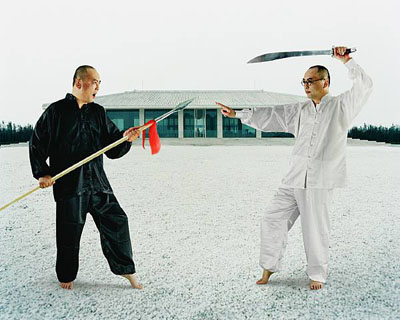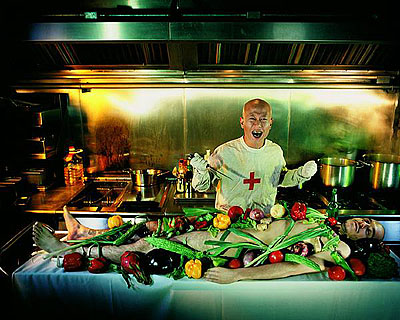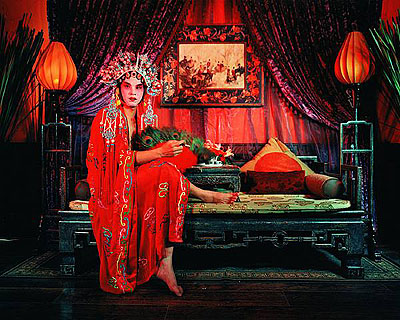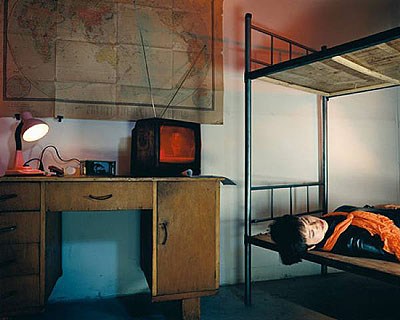
Zhang XiaoGang, 2006
Hugo Tillman »
Chinese Contemporary
Exhibition: 12 Sep – 7 Oct 2006

Nohra Haime Gallery
500 West 21st Street
NY 10011 New York
+1-212-8883550
gallery@nohrahaimegallery.com
www.nohrahaimegallery.com
Tue-Sat 10-18
HUGO TILLMAN: CHINESE CONTEMPORARY September 5- November 5, 2006: SHANGHAI BIENNALE September 12 to October 7, 2006: NOHRA HAIME GALLERY British artist Hugo Tillman's new series of color photographs, on view at Nohra Haime Gallery from September 12th to October 7th, turns his lens towards China, the fastest growing force in art and economics. As the world focuses on this emerging powerhouse, Tillman examines in the most intimate of portrayals, fourteen of the leading Chinese artists of today. This is Tillman's first solo exhibition at the Nohra Haime Gallery. For this project, Tillman spent months in China interviewing his subjects and immersing himself in the culture and art scene. He explains: "I interviewed each artist for a few hours, asking them about their past, their memories, their dreams and their fears. Then I photographed each artist in sets that recreate their memories and dreams." The result is a mesmerizing look at the unique psychological landscape of the present-day Chinese art world, seen from Tillman's Western point-of-view. The dream-like quality of the settings that Tillman creates and the vibrant hues of red, blue, pink and green give the images a psychedelic quality reinforcing the surreal element of his project. In one photograph, Zhang Xiaotao sits naked in a water tank, his head underwater as fish swim about and pink lilies float languidly on the surface. Against the blue-lit background, the scene becomes lyrical and unreal, as Zhang Xiaotao re-enacts his brush with death in the Yangtze River when he was just four years old. The difficult conditions of growing up in China are evident in Tillman's portrayal of Yu Hong. In the corner of a cold, bare room lays Yu Hong on a steel bed with no mattress. The only other decorative elements are an ancient-looking television set, with a glowing red screen, and a world map above a simple wooden desk. Tillman recreates the setting of Yu Hong's happy yet difficult childhood with the original furniture and period maps of the room she was raised in along with her whole family. In another photograph, Sheng Qi emerges from the darkness; the hand covering his face is missing a finger, which he cut off in protest against the government during the Tian'anmen Square conflict. Today Sheng Qi views his missing finger as a representation of China's emergence from the darkness. In this deeply personal examination by a Western artist of his Asian counterparts, Tillman creates, through artful stage settings, a dramatic composition to convey a generation of forward looking individuals whose struggle with the country's recent past, its oppressive regime, is a constant battle. As in his other photographs, the intense tonal quality and the ambiguous settings contrast with the stark reality of the memories and dreams that they depict. A catalogue of the exhibition will be published.

Liu Wei, 2006

Chen Wen Ling, 2006

Yu Hong, 2006